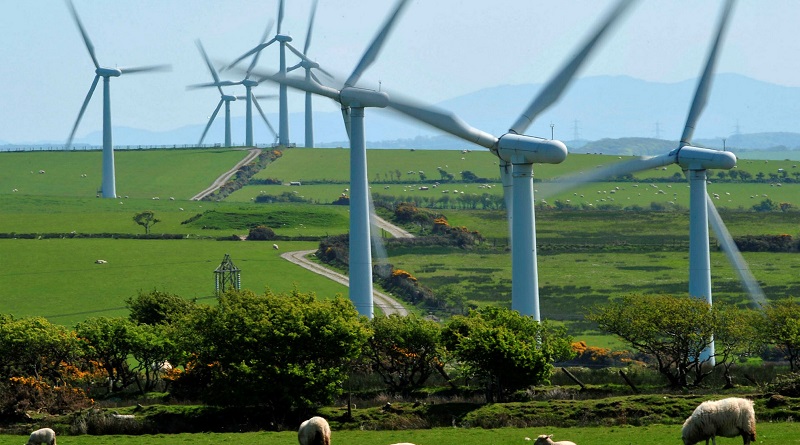Group kicks off power up initiative in 63 countries
Kicking off a month of actions for climate solutions under the banner of Power Up, the weekend from Friday 3 to 5th of November saw a display of international solidarity as citizens, activists, and organizations from Argentina to Zanzibar in over 200 locations spanning 63 countries came together for a long weekend of global action. Led by communities worldwide, the Power Up events sent a resounding call to address the climate crisis, highlighting sustained demands for immediate and comprehensive climate solutions rooted in social justice from world leaders.
This first wave of actions in the month-long drumroll towards the UN Climate Talks in December (COP28), with a global day of action scheduled for December 9th saw a groundswell of support with individuals and communities from diverse backgrounds converging to demand positive change. From bustling urban centers to remote villages, participants united under the common goal of powering up a sustainable, climate-resilient future.
Key highlights include:
More than 200 locations across 63 countries participated, showcasing the scale of this global movement.
A wide range of activities including peaceful marches, educational events, art, underwater power-up actions, murals, and installations.
Actions were attended by people of all ages, backgrounds, and walks of life, showcasing the inclusive nature of the climate movement.
“We stand at a pivotal moment in history where we can no longer ignore the undeniable truth – the climate crisis is here, and it affects us all,” said May Boeve, Executive Director of 350.org. “Our collective voice, heard across the globe this weekend, sends a clear message to world leaders: it’s time to power up immediate, ambitious, and comprehensive climate solutions.
Power Up is igniting a wave of hope and determination among climate advocates and concerned citizens worldwide. As the climate movement continues to gain momentum, it is clear that the demand for climate solutions will only grow stronger.”
Our global call for climate action transcends borders, unites communities, and inspires change. Together, we can address the climate crisis and pave the way for a sustainable, just, and resilient future for all.”
As we are just weeks away from the United Nations Climate Conference, COP 28 in Dubai, starting on November 30, as the climate emergency gets ever closer to us all, the need to triple renewable energy and finance it, must be the main outcome this year:
2023 is going to be the hottest year on record. Multiple climate disasters impacted the lives, homes and livelihoods of millions of people throughout the year – from devastating wildfires in Hawaï and Canada to deadly floods in Greece or record heat waves across South Asia.
Many governments that claim to be climate leaders are dramatically scaling back their climate commitments. This is for example the case in the United Kingdom, the Conservative government announced in September that it was pushing back the ban on the sale of new diesel and gasoline cars and gas water heaters.
Despite a record net profit of $4.144 trillion in 2022, fossil fuel companies have invested just 0.0019% of that in solar and wind this year. That’s less than 2 cents for every $1,000 of income! It is clear that the transition to renewable energy will not be financed by gas and oil companies.
In the meantime, soaring energy prices drive the cost-of-living crisis, which threatens to push up to 110 million people into extreme poverty.
Pay Up – Address the obscene profits of the fossil fuel industry and make them pay the bill: We must reclaim fossil fuel companies’ illegitimate profits and redistribute them equitably. To start with, our governments should impose taxes on their unjust profits, eliminate subsidies, investments, and loans to coal, oil and gas companies.
Power Up – Unleash the money to fund renewable energies: To keep global heating below 1.5 degrees, we need to urgently triple renewable energy targets, bringing on 1.5 terawatts of renewable energy globally from 2030 onwards. Governments must redirect financial resources towards renewable energies through all the financial mechanisms possible, on local, national and global levels. These resources should align with the scale and urgency of the climate crisis and ensure a globally equitable distribution of funds. We call for a transition that goes beyond replacing one broken energy system with another. Governments must prioritize resources to countries least responsible for the climate crisis and most vulnerable to its impacts, and must let frontline and marginalized communities lead the way.
It is in this context that at the end of October and the beginning of November, TotalEnergies, Chevron, BP, Shell and the other fossil fuel giants will announce their quarterly profits.
With Power Up, globally, we demand that big polluters pay for a just energy transition. The money to finance solutions to the climate crisis is here, and the big polluters, responsible for this crisis, must pay for the energy transition instead of enriching their shareholders. For more information, see our ‘Where is the money’.




